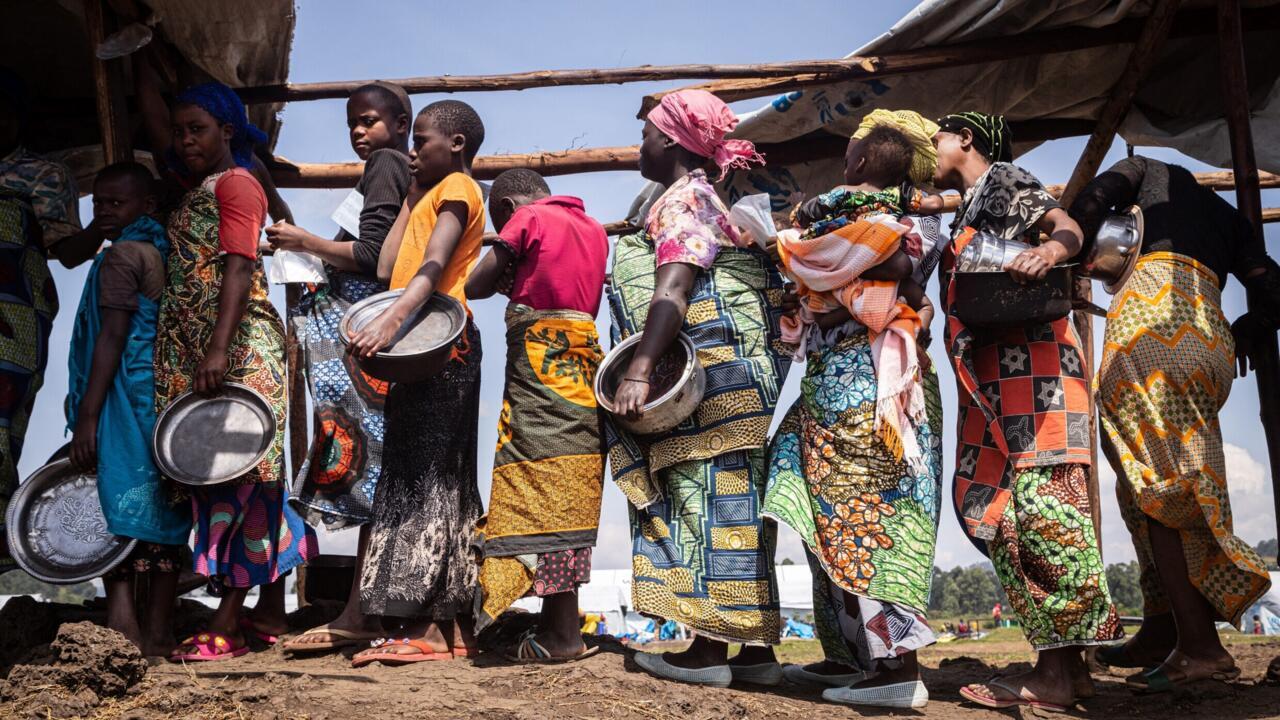Conflict in eastern DRC has separated hundreds of children from their families
Displaced people recently arrived from Rutshuru territory (North Kivu) wait for lunch in the Nyakabande refugee transit camp, in Kisoro, Uganda, on June 7, 2022. © badru Katumba / AFP
Text by: RFI Follow
2 mins
In the Democratic Republic of Congo, tens of thousands of people have fled their homes since the end of March, in the territory of Rutshuru (in the East), to flee fighting between M23 rebels and Congolese forces.
The International Committee of the Red Cross estimates the number of internally displaced persons at 150,000, to which must be added 25,000 refugees in Uganda.
Among these people are children, more than 800 of whom are separated from their families.
Advertising
Read more
"
The fighting caused panic and families dispersed as they tried to flee
," said the International Committee of the Red Cross (ICRC).
Children have therefore found themselves separated from their families, sometimes
within the country
, but other times family members find themselves separated between the DRC and Uganda.
According to Raphael Ténaud, head of the ICRC sub-delegation for North Kivu, these children share the same needs as any displaced person or refugee: "
They sometimes live in difficult conditions, they lack water, health care, access to toilets worthy of the name, sometimes when the children are very vulnerable, we can also welcome them and transfer them to reception centres, for example in Goma, which will be able to take care of them while we let's look for and hopefully find their family.
»
To date, around 40 unaccompanied children have been reunited with their families in the DRC.
The ICRC continues its work, so that others can in turn find their loved ones.
But the task is complicated by the
security situation in the area
, as well as by the age of the children concerned, explains Raphael Ténaud:
There are some children who are already teenagers, and others who are so small that they cannot even tell us how to find their parents.
We can't find out where they come from exactly, they don't know a phone number or an address, and it's all the more difficult for these children to find their family.
The ICRC asks anyone with information about unaccompanied children to contact them by approaching one of their volunteers in the DRC or by telephone.
For this, the organization has set up a system of free telephone calls for displaced people separated from their relatives, on 47 22 22.
Newsletter
Receive all the international news directly in your mailbox
I subscribe
Follow all the international news by downloading the RFI application
google-play-badge_EN
ground floor
Refugees
Humanitarian
Children's rights
Immigration
International Migrations

